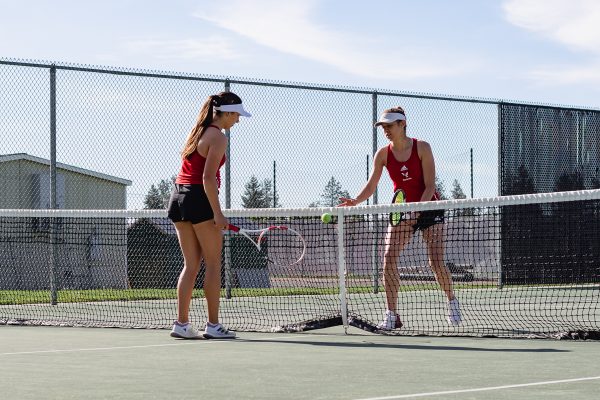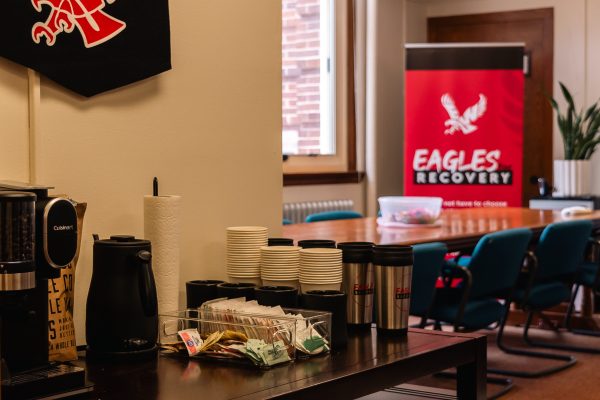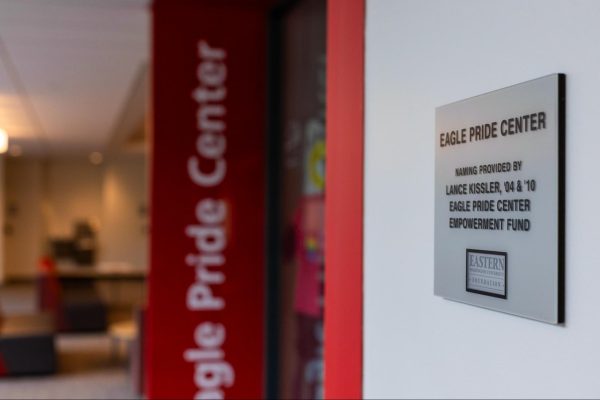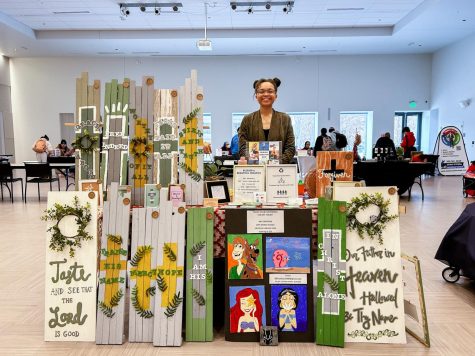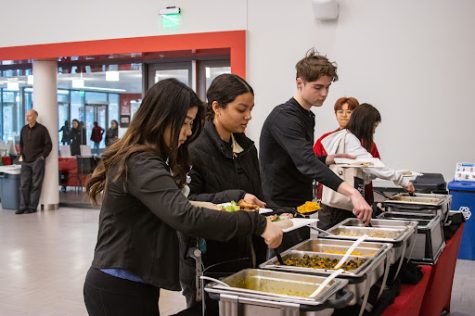FIRST Robots take over Reese Court
The Kent KM Royals team prepare for the start of a competition round at the FIRST Robotics Pacific Northwest District Championship on April 1.
April 9, 2015
Basketball season is over, but Reese Court was packed last week as the Pacific Northwest For Inspiration and Recognition of Science and Technology (FIRST) Robotics 2015 District Championships were held from April 1-4.
Sixty-four teams from high schools around Washington and Oregon converged at EWU, where 31 teams advanced to the World Championships, to be held in St. Louis, Missouri.
“EWU has been a great partner for us for many years. They have hosted several competitions in the previous years, and we made the decision that this year we wanted the championship to be held at EWU,” said Erin McCallum, president of Washington FIRST Robotics.
Attendance at Reese Court spilled into the upper-deck, with a raucous atmosphere for all four days. Students, parents and fans alike were dressed in gear representing teams that were competing. A pit in the center of the arena held all of the action, where 128 qualification matches and 16 playoff matches took place.
Sixty-four of the 154 FRC (FIRST Robotics Competition) teams from 10 districts in Washington and Oregon advanced through prior qualifying to earn a chance to advance to the World Championships.There are four different programs in FIRST, based on age and grade level, and the FRC is the most advanced program, open to all high school students.
According to the FIRST website, FRC is the varsity sport for the mind and has strict rules, time limits and limited resources. Teams consist of 25 or more members, with professional volunteers acting as mentors to the students. $25 million worth of college scholarships are distributed to members of the FRC every year around the United States.
While scholarship opportunities are a financial benefit of being involved in FIRST, McCallum said he thinks there are many other reasons why a student should be involved in the program.
“A lot of FIRST teams are also very focused on leadership development, and obviously teamwork,” said McCallum. “Many of these teams operate like small businesses. They have smaller groups of students inside a team that are focused on the business side of it, public relations side of it, finance budget, as well as coding, programming and fabricating.”
In the championship match on April 4, the Blue Alliance, consisting of Raisbeck Aviation High School (Team #1983), Crescent Valley High School (Team #955) and Glacier Peak High School (Team #2930) edged out the Red Alliance in the game Recycle Rush, winning the first two matches in the best-of-three series.
Recycle Rush is the FRC’s game for the 2015 season, with the robots compiling a stack of up to six plastic storage containers, which when capped off with a recycle bin, earns the team bonus points. A team earns points by pushing the stack of containers to a designated area, where they drop off their haul and return to collect more containers before time runs out.
Awards such as the Gracious Professionals Award, the Industrial Design Award, the Industrial Safety Award, the Innovation In Robotics Award and the Excellence In Engineering Award were handed out after the competition.
The Rookie All-Star Award went to Snohomish High School (Team #5495), earning them a berth in the World Championships, which takes place April 22-25. All three teams in the Blue Alliance earned an automatic spot in the World Championships as well. In all, there were nine automatic berths to the World Championships based on awards won and 22 at-large berths determined by average team score.
Qualifying for the World Championships means more expenses for each team, which is where sponsors play a large role in FIRST. McCallum said funding for a team can cost up to $50,000 a year. Companies such as Microsoft, Boeing and HP sponsor multiple regional teams, with many local companies sponsoring teams as well.
“We have some wonderful companies, foundations and individuals that support teams on their expenditures. Those dollars are spent on registration fees, building the robot, team gear and the majority of it is travel. It becomes costly to spend a couple of nights in a hotel and rent travel buses,” said McCallum.
For more information about the FIRST program, visit usfirst.org.



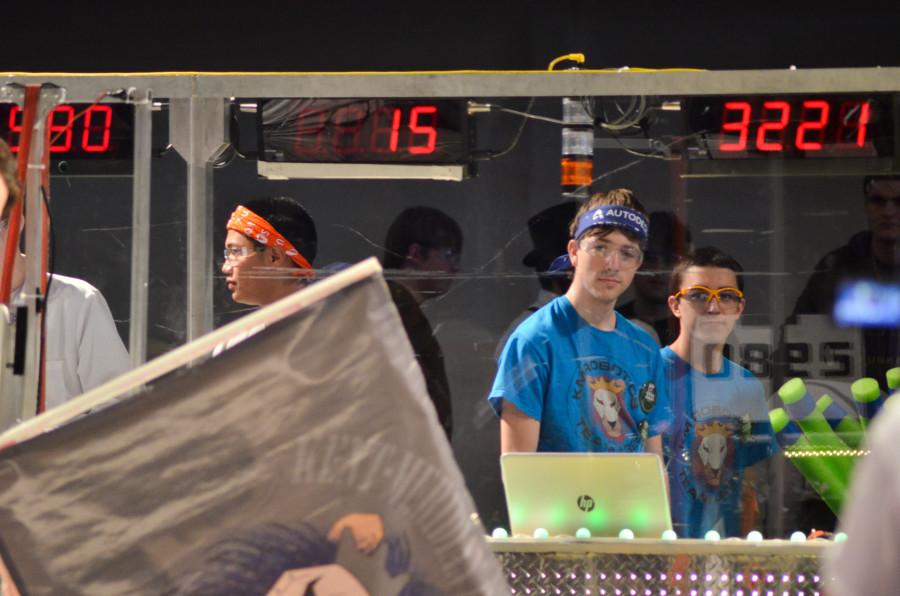


![Simmons said the biggest reasons for her success this year were “God, hard work, and trusting [her] coach and what she has planned.”](https://theeasterner.org/wp-content/uploads/2024/05/image1-1-1200x800.jpg)

